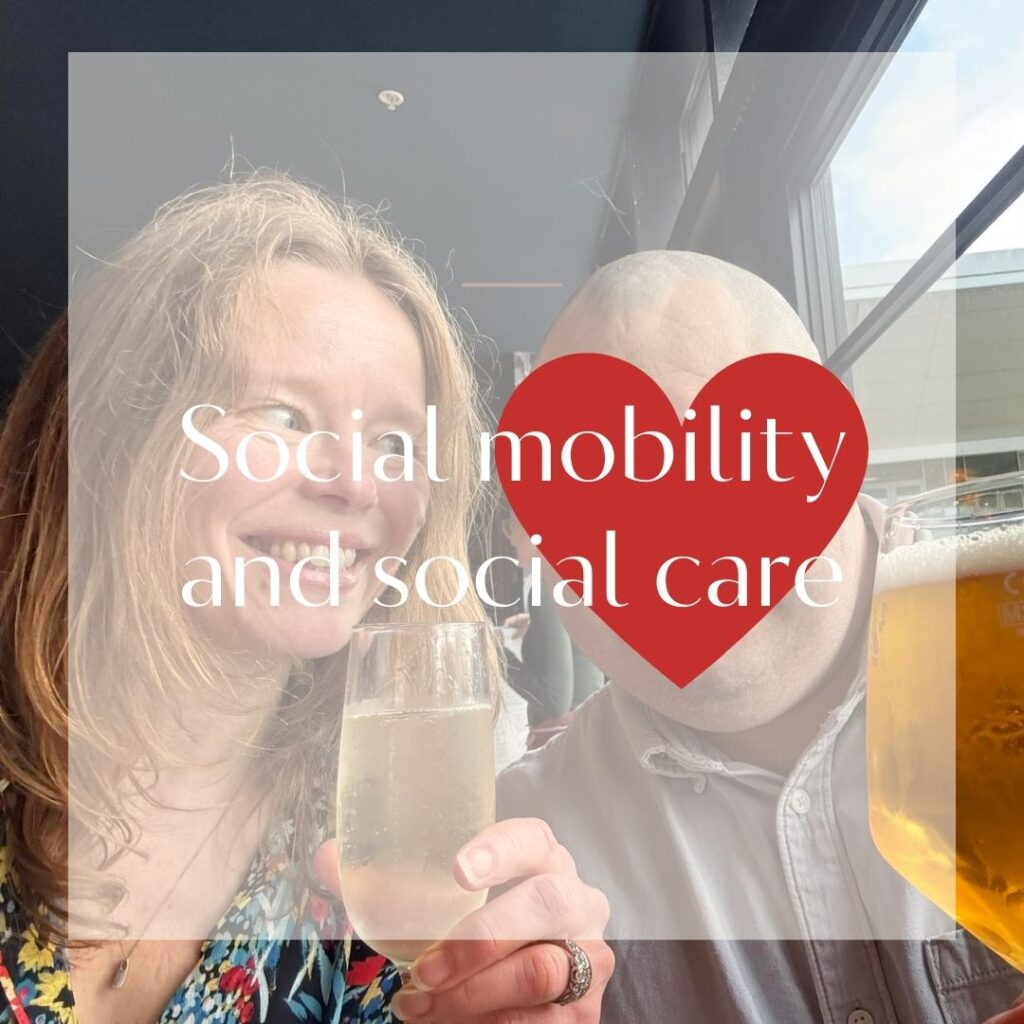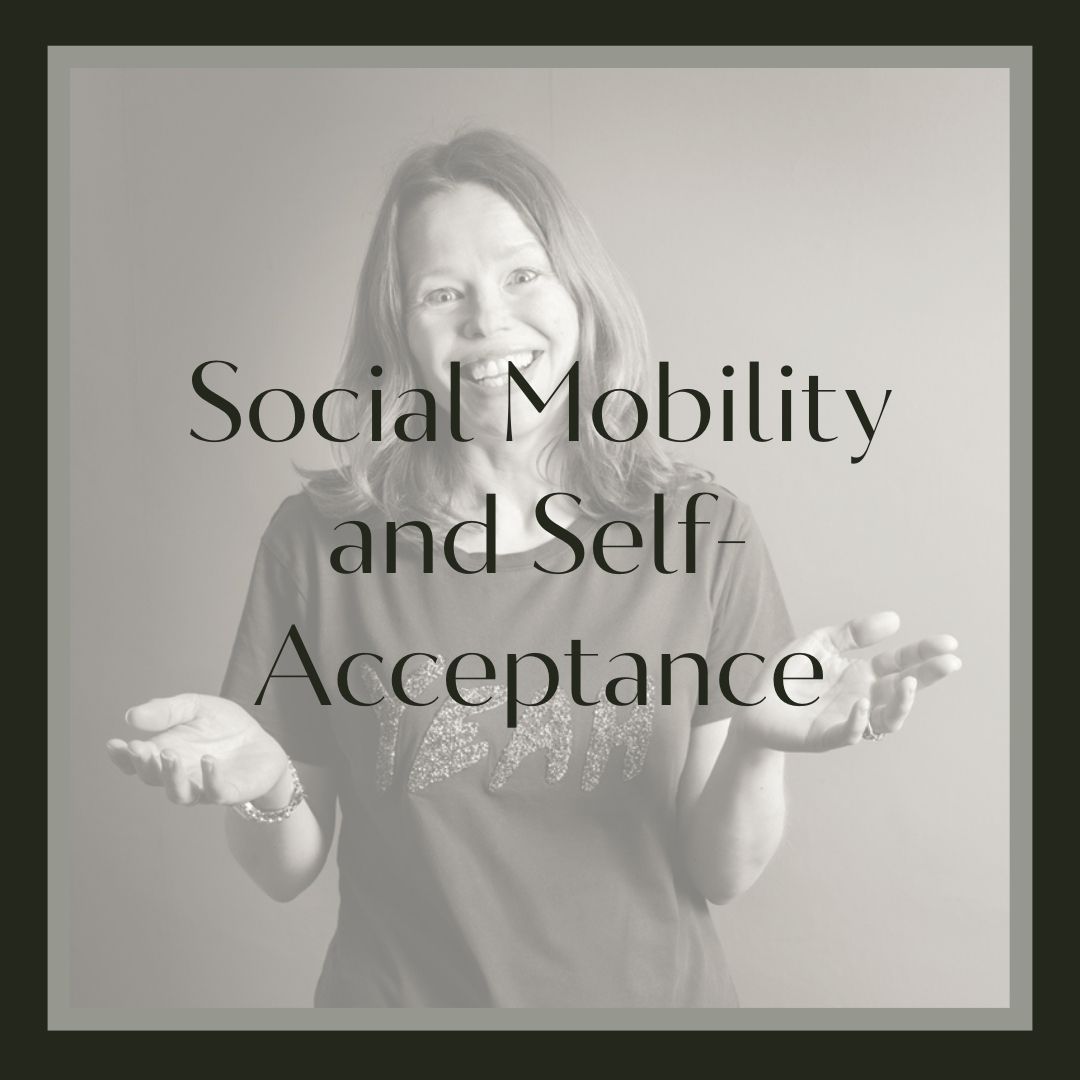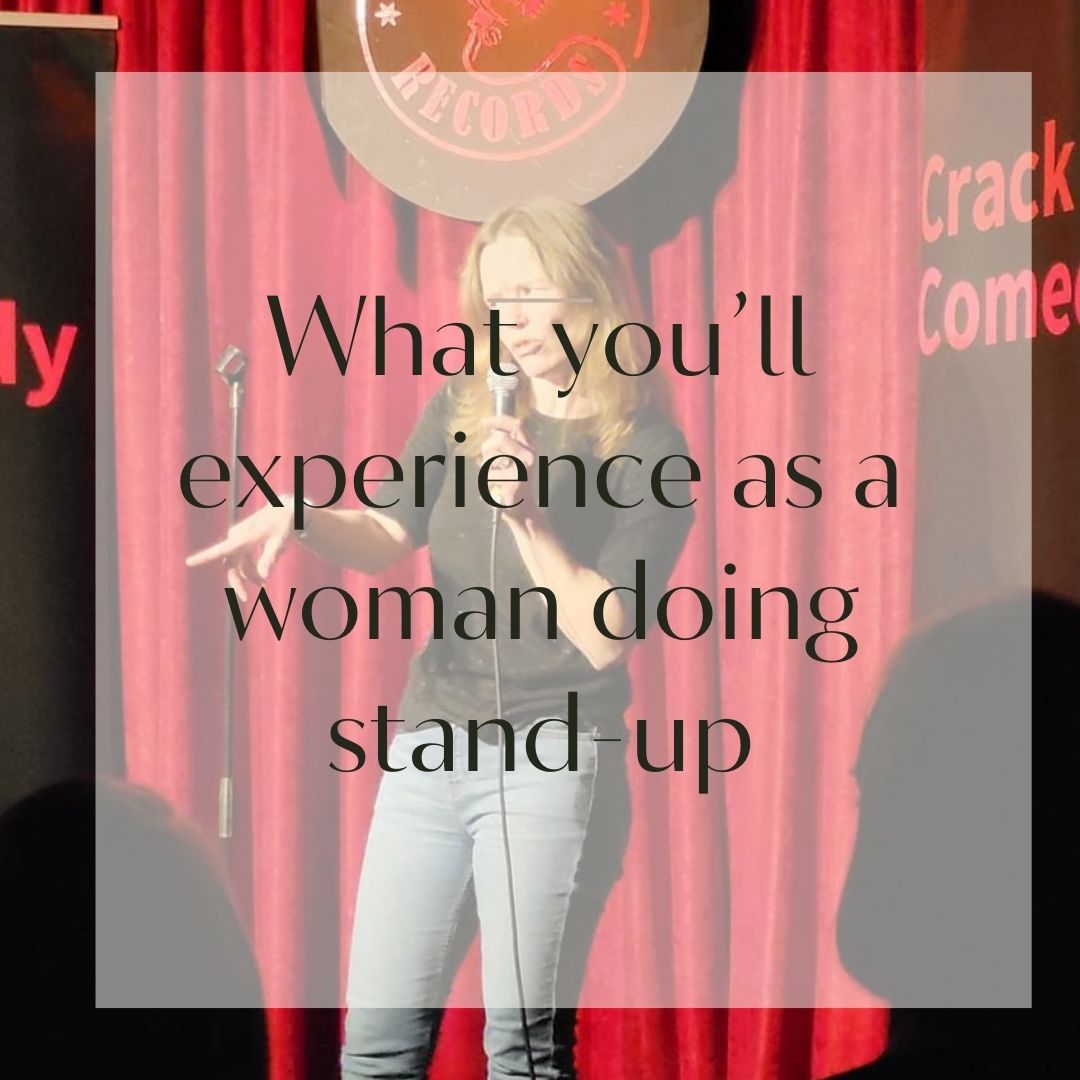Something that crops up *a lot* when I speak with people who have experienced social mobility and have siblings or family members in social care is the absolute guilt and sense of helplessness that comes along with having ‘made it’ / ‘done well’ when your relatives are at the mercy of Government funding, service availability, and consistency in staffing levels.
It hurts like f*** to know that you can’t give your relatives the things they might want. Like being able to live with their family. Or at least live close enough that the people who love them and can’t drive or afford public transport can pop in. Or the people who *can( drive don’t have to make a 200 mile round trip to see them.
On a personal level you question whether you are a ‘good person’ for having followed your ambitions and stepped away from the struggles faced by those you grew up with. Whether it would have been better to stay. Whether you could do more.
When you have been exposed to social services since childhood, seen siblings go into care and experienced the white heat of a parent who is struggling to work positively with people that they do not trust, it is really bloody hard. If you are lucky enough to avoid repeating a cycle, it can be doubly difficult to reconcile how you get to have it easier and how it is that you can use your position to help.
In my case at least, it has meant that I can be an advocate. I can be a next of kin. I can be the one who keeps careful notes and records of placements and incidents, weight gain and medication. I can stop a meeting to ask for the acronym to be explained, or if we can go ’round the room’ in a multi-agency situation to find out who the hell all these new people are. I can explain my family story again and again without losing the will to live. My involvement can be described as “therapeutic” and “like a professional”. I can be told that people “forget I’m a family member.”. (Don’t know about that last one…).
I can also be the one to take my brother out for a slap up meal on his birthday. Where he will graciously kiss the waitress on the hand and introduce himself to anyone who makes eye contact. And make friends with the bloke at the next table who sees me (badly) trying to take a selfie and captures a picture of us both. I can get to be a big sister.
For anyone who is in a similar situation, please know that you are not on your own. The sense of being out of place where you’re from, and where you are, is all too real and I’m keen to make sure that whilst social mobility is something that is often applauded (and rightly so), we don’t forget that it can come at a sense of personal cost.
If you’ve enjoyed this post, you’ll probably like my keynote talks on social mobility. To make an enquiry, or to book me, head over to the contact form or drop me a line at [email protected]
Other posts you might enjoy:
Social Mobility and History Repeating Itself
Social Mobility and Scholarships




